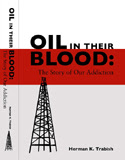It’s Now Or Never -- IPCC
Scientists deliver ‘final warning’ on climate crisis: act now or it’s too late; IPCC report says only swift and drastic action can avert irrevocable damage to world
Fiona Harvey, 20 March 2023 (UK Guardian)
“Scientists have delivered a ‘final warning’ on the climate crisis, as rising greenhouse gas emissions push the world to the brink of irrevocable damage that only swift and drastic action can avert…[The Intergovernmental Panel on Climate Change (IPCC) final part of its mammoth sixth assessment report] on all human knowledge of the climate crisis took hundreds of scientists eight years to compile and runs to thousands of pages, but boiled down to one message: act now, or it will be too late…
Extreme weather caused by climate breakdown has led to increased deaths from intensifying heatwaves in all regions, millions of lives and homes destroyed in droughts and floods, millions of people facing hunger, and ‘increasingly irreversible losses’ in vital ecosystems…[The new] synthesis report, is almost certain to be the last such assessment while the world still has a chance of limiting global temperature rises to 1.5C above pre-industrial levels, the threshold beyond which our damage to the climate will rapidly become irreversible…More than 3bn people already live in areas that are ‘highly vulnerable’ to climate breakdown, the IPCC found, and half of the global population now experiences severe water scarcity for at least part of the year…
In many areas, the report warned, we are already reaching the limit to which we can adapt to such severe changes, and weather extremes are ‘increasingly driving displacement; of people in Africa, Asia, North, Central and South America, and the south Pacific...All of those impacts are set to increase rapidly, as we have failed to reverse the 200-year trend of rising greenhouse gas emissions, despite more than 30 years of warnings…Temperatures are now about 1.1C above pre-industrial levels, the IPCC found. If greenhouse gas emissions can be made to peak as soon as possible, and are reduced rapidly in the following years, it may still be possible to avoid the worst ravages that would follow a 1.5C rise…” click here for more


 click to enlarge
click to enlarge click to enlarge
click to enlarge click to enlarge
click to enlarge

0 Comments:
Post a Comment
<< Home